Invisible struggles: WASH insecurity and implications of extreme weather among urban homeless in high-income countries – A systematic scoping review
Year: 2023
Published in: International Journal of Hygiene and Environmental Health
This paper aims to provide a deeper understanding of the water-, sanitation- and hygiene (WASH)-related insecurities that people experiencing homelessness in urban areas of high-income countries (HIC) are facing, and how these insecurities are further complicated during extreme weather events. While limited recent research has looked into WASH among people experiencing homelessness in HICs, and while some work has considering the implications of climate change on WASH and health, the nexus of WASH, extreme weather events and homelessness in HICs have not been studied thus far. We conducted the first systematic scoping review of peer-reviewed literature on this nexus, which is understudied and marked by complexity, involving a range of systems and forms of impact. A total of 50 publications were included in our analysis.
We found that public facilities like drinking water fountains, toilets, handwashing facilities, and showers are scarce, frequently unavailable, often pose safety and cleanliness issues, and access to non-public facilities may be cost-prohibitive for homeless populations. Consequently, people experiencing homelessness, including those sleeping rough, in encampments, or shelters, are often forced to limit drinking water consumption, forego healthy hygiene behaviours, and resort to open urination and defecation, all of which carry health risks. Extreme weather events, like heatwaves, extreme cold, heavy rain and flooding exacerbate challenges for people experiencing homelessness, further complicating their access to WASH, and reducing the ability of service providers to deliver extra relief, creating a dual WASH and health burden.
Our review highlights that the Human Right to Water and Sanitation is not met for people experiencing homelessness in urban areas of high-income countries, with women emerging as one of the most vulnerable subgroups. It reveals that the impact of certain WASH issues (e.g. drinking water) on homeless populations are better understood than others (e.g. waste), and, similarly, the effects of certain extreme weather events (e.g. heatwaves) on the health and WASH conditions of people experiencing homelessness are better understood than others (e.g. flooding). Data gaps and the lack of information on limited WASH access and health circumstances of people experiencing homelessness, further minimize their representation and consequently impose obstacles to improve their situation.
Based on our analysis, we established a framework which operationalizes the nexus of WASH, extreme weather events and homelessness. This framework improves our understanding of the underlying complexities at the intersection of these three issues and provides a foundation for enhanced preparedness and health-oriented planning.

